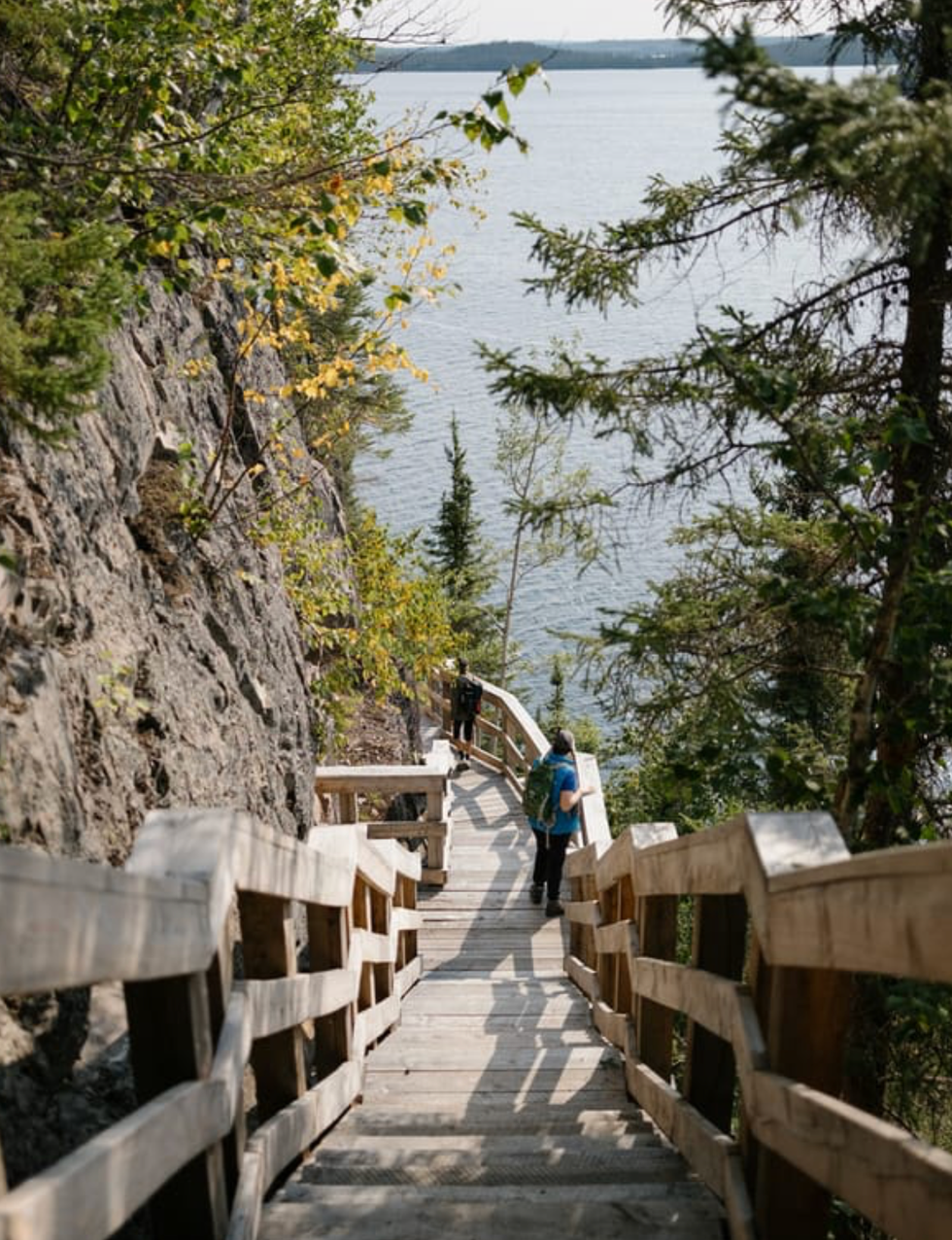These advisories aren't meant to stop you from travelling altogether, but they do help travellers understand what to expect and how to prepare. Plus, in some cases, travelling to regions with active travel advisories may affect your travel insurance, so it's essential to understand the potential risks.
Some destinations come with specific regional warnings, while others simply call for extra awareness and caution. Travel advisories are grouped into four levels, ranging from "Take normal security precautions" to "Avoid all travel."
Whether you're planning a beach escape, a European city break, or a once-in-a-lifetime trip, knowing the risks ahead of time can help you travel smarter in 2026.
Here are nine travel advisories every Canadian should know about before booking a trip next year.
Italy
Last Updated: December 15, 2025
Risk Level: Exercise a high degree of caution in Italy due to the threat of terrorism.
Details: With Rome hosting the Jubilee celebrations from December 24, 2024, to January 6, 2026, and northern Italy set to welcome visitors for the Milan Cortina Winter Olympics in February 2026, many travellers may be planning trips to Italy over the coming months.
Canada warns that there is a serious risk of terrorism in Europe, and attacks in Italy cannot be ruled out. Travellers are advised to stay alert in crowded public places, including tourist attractions, transport hubs, restaurants, and places of worship.
Increased police and military presence should be expected, particularly during holidays and major events.
Italy Travel Advisory
Thailand
Last Updated: December 16, 2025
Risk Level: Exercise a high degree of caution in Thailand due to ongoing political tensions and sporadic demonstrations in Bangkok and elsewhere in the country.
Details: With many travellers planning a dream backpacking trip through Southeast Asia in 2026, Thailand remains a major draw for its beaches, cities, food scene, and affordability.
However, Canada's advisory notes ongoing political instability, particularly in Bangkok, where demonstrations can occur and security measures may be imposed with little notice.
Canada advises avoiding all travel to areas within 50 kilometres of the Thailand–Cambodia border due to renewed armed conflict, closed border crossings, and the presence of land mines.
All travel should also be avoided in Thailand's southern provinces of Narathiwat, Pattani, Yala, and parts of Songkhla due to ongoing insurgent violence. Increased military presence, curfews, and sudden movement restrictions may be enforced in affected regions.
Canadians who do decide to travel are urged to follow local authorities, monitor local media, and plan routes carefully.
Thailand Travel Advisory
Cuba
Last Updated: December 15, 2025
Risk Level: Exercise a high degree of caution in Cuba due to shortages of basic necessities including food, medicine, and fuel.
Details: With Cuba continuing to attract travellers for its all-inclusive resorts, historic cities, and winter sun, many people may be eyeing a trip in 2026.
However, the advisory warns that long daily power cuts remain common, and unexpected nationwide outages can last more than 24 hours.
Cuba is also facing chronic shortages of essentials, including food, bottled water, medication, fuel, and cash. Fuel shortages have disrupted transportation across the island, sometimes leaving travellers stranded, while intermittent water shortages have affected cities and resorts.
While conditions could improve in 2026, these issues have been ongoing for many months and the situation is unlikely to improve significantly in the short term.
Cuba Travel Advisory
France
Last Updated: December 15, 2025
Risk Level: Exercise a high degree of caution in France due to the elevated threat of terrorism.
Details: From Paris winter getaways to ski trips in the Alps, France is a go-to for Canadian travellers year-round — and 2026 will be no different.
However, Canada's advisory notes that France has experienced opportunistic and premeditated terror-related attacks in recent years, resulting in deaths and injuries, and further attacks are considered "likely."
France's Vigipirate security plan is currently at level 3. Travellers should expect an increased police and military presence in transport hubs, public places, and tourist locations, especially in Paris.
France Travel Advisory
Jamaica
Last Updated: December 19, 2025
Risk Level: Exercise a high degree of caution in Jamaica due to the high level of violent crime, particularly outside tourist areas.
Details: Those looking to escape for a bit of sun early next year might be considering Jamaica, but Canada's travel advisory notes that crime remains a concern in parts of the country.
Violent crime, including armed robbery and murder, continues to occur in large cities such as Kingston and Montego Bay, particularly in areas identified as high-risk or gang-controlled.
Police are present in tourist areas and resorts, though incidents of assault, robbery, and petty crime like pickpocketing and bag snatching still affect visitors, especially in crowded places.
Travellers may also encounter police checkpoints along major routes, including the North Coast Highway, and are advised to remain vigilant, secure valuables, and avoid isolated areas or travel at night.
Jamaica Travel Advisory
United Kingdom
Last Updated: December 15, 2025
Risk Level: Exercise a high degree of caution in the United Kingdom due to the threat of terrorism.
Details: Fans of Harry Potter or other iconic British series might be dreaming of an England trip in 2026, but Canada's advisory notes that there is an ongoing threat of terrorism across the country.
Previous attacks have caused casualties and have included knife attacks, vehicle incidents, and explosions, with most occurring in London but others reported elsewhere.
Further attacks are considered likely, particularly in public places such as tourist attractions, transportation hubs, restaurants, markets, and places of worship.
Travellers are advised to stay aware of their surroundings, especially during sporting events, religious holidays, public celebrations, and major political events.
United Kingdom Travel Advisory
Turks and Caicos Islands
Last Updated: December 19, 2025
Risk Level: Exercise a high degree of caution in the Turks and Caicos Islands due to crime.
Details: With its clear turquoise waters and resort-lined beaches, Turks and Caicos continues to attract travellers planning a warm-weather escape in 2026. However, crime remains a concern across the islands, particularly on Providenciales.
Petty crime such as pickpocketing, bag snatching, muggings, and theft from beaches, vehicles, and accommodations occurs regularly. Violent incidents — including armed robberies, home invasions, sexual assaults, and murders — have also been reported.
Gang-related gun violence exists, and while visitors are not usually targeted, there is a risk of being in the wrong place at the wrong time.
What's more, crime tends to increase during the holiday season, and police response times may be slow.
Turks and Caicos Islands Travel Advisory
Maldives
Last Updated: December 15, 2025
Risk Level: Exercise a high degree of caution in the Maldives due to the threat of terrorism.
Details: So many people will have the Maldives at the top of their bucket list for 2026, drawn by overwater bungalows and postcard-perfect beaches. However, the country is considered to have an ongoing terrorism risk, and attacks could happen without warning.
According to the advisory, locations that attract visitors — including resorts, restaurants, shopping areas, and transportation hubs — could be affected, along with government buildings and places of worship.
Travellers are encouraged to stay alert in public spaces and follow local instructions, especially when moving between islands or spending time outside resort compounds.
Maldives Travel Advisory
Nepal
Last Updated: December 15, 2025
Risk Level: Avoid non-essential travel to Nepal due to civil unrest, violence, and the fragile political and security situation. The security situation can deteriorate without warning. Canada's ability to provide consular assistance is limited in Nepal at the moment.
Details: With Mount Everest sitting high on many travellers' bucket lists, Nepal continues to attract adventurers and trekkers from around the world. However, recent demonstrations have raised safety concerns in parts of the country.
In September 2025, violent clashes between demonstrators and security forces in Kathmandu resulted in hundreds of casualties and several deaths.
While curfews in the Kathmandu Valley have since been lifted and flights have resumed, Canadian authorities warn the situation remains volatile and restrictions could return with little notice.
Visitors in Kathmandu are encouraged to avoid demonstrations and government buildings, expect heightened security, monitor local updates, and follow instructions from local authorities.
Nepal Travel Advisory
Before you get going, check out our Responsible Travel Guide so you can be informed, be safe, be smart, and most of all, be respectful on your trip.
AI tools may have been used to support the creation or distribution of this content; however, it has been carefully edited and fact-checked by a member of MTL Blog's Editorial team. For more information on our use of AI, please visit our Editorial Standards page.
 Nibiischii National Park.Alison Caron-Lachance | Handout
Nibiischii National Park.Alison Caron-Lachance | Handout Nibiischii National Park.Hooké | Handout
Nibiischii National Park.Hooké | Handout Nibiischii National Park.Félix Duchesne | Handout
Nibiischii National Park.Félix Duchesne | Handout Nibiischii National Park.Stay & Wander | Handout
Nibiischii National Park.Stay & Wander | Handout